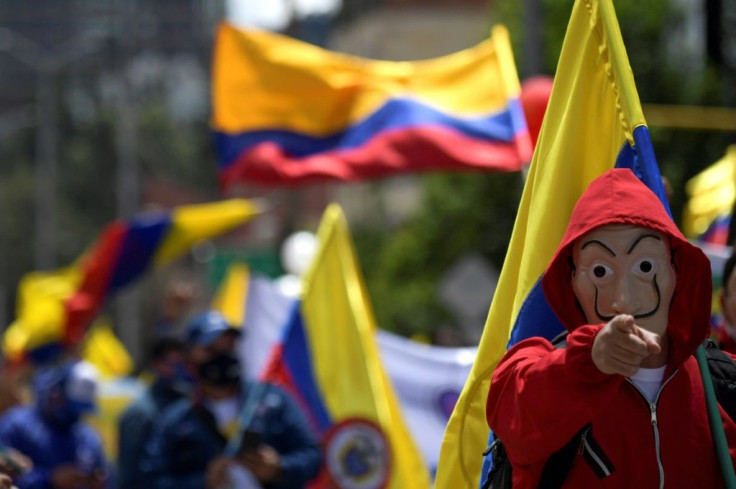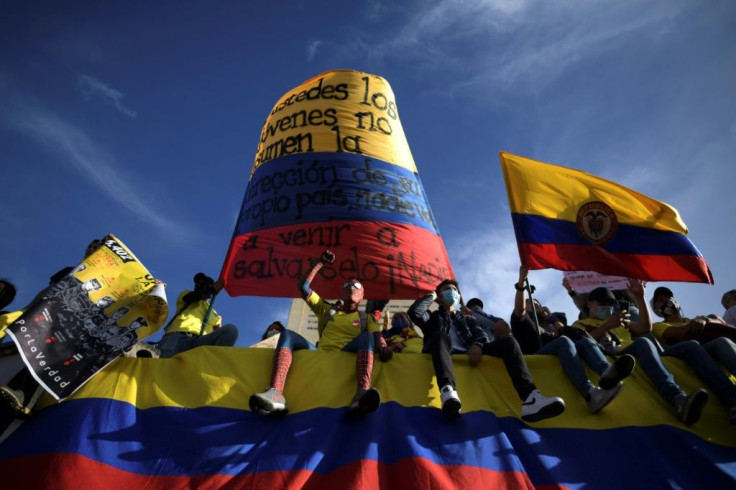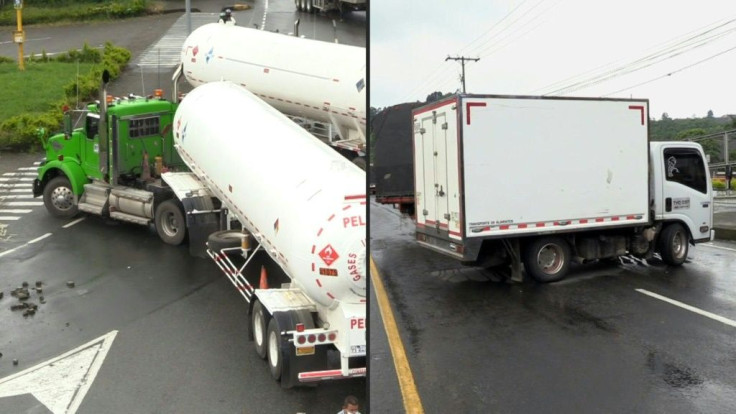Colombians Protest Ahead Of Talks With Government
Colombians took to the streets Wednesday, on the eve of talks with the government, in a third week of demonstrations that have been marked by police abuses and dozens of civilian deaths.
The talks, due to resume Thursday, have stumbled over the government's reticence to renounce violence by the police, and on Wednesday Nobel Peace laureate Juan Manuel Santos, a former Colombian president, urged incumbent Ivan Duque to recognize the misuse of force.

Thousands of people mobilized in Bogota, Cali, Medellin and other cities, with no early reports of clashes.
At least 42 people, mostly civilians, have died in clashes with security forces since demonstrations started on April 28, according to official figures, and more than 1,700 have been injured.
NGOS say the casualty number is higher.

"We need more gestures, we need more empathy and more humility, and for the state to recognize: 'look, we committed abuses,'" Santos told W Radio.
Such a move would go a long way, he said, towards breaking a deadlock with demonstrators who initially took to the streets against a proposed tax reform.

The plan was quickly shelved, but protests have since morphed into a broader demonstration of anti-government sentiment.
Santos was awarded the Nobel Prize for negotiating a 2016 peace accord with the Revolutionary Armed Forces of Colombia (FARC) and bringing an end to a half-century of armed conflict between the leftist guerrillas and the state.
He said the security forces' reputation "has deteriorated a lot" due to the perceived repression of protesters demanding profound societal change as the country reels from the effects of the coronavirus pandemic.
Santos offered to act as a mediator between the government and demonstrators.
Colombia has come under fire from NGOs, the United Nations, European Union and United States over the police response to the uprising.
President Duque has acknowledged there were individual cases of police abuse but blames the violence mostly on "vandalism" and road blockades.
Almost a third of young Colombians are neither working nor studying, according to official data.
© Copyright AFP 2024. All rights reserved.











